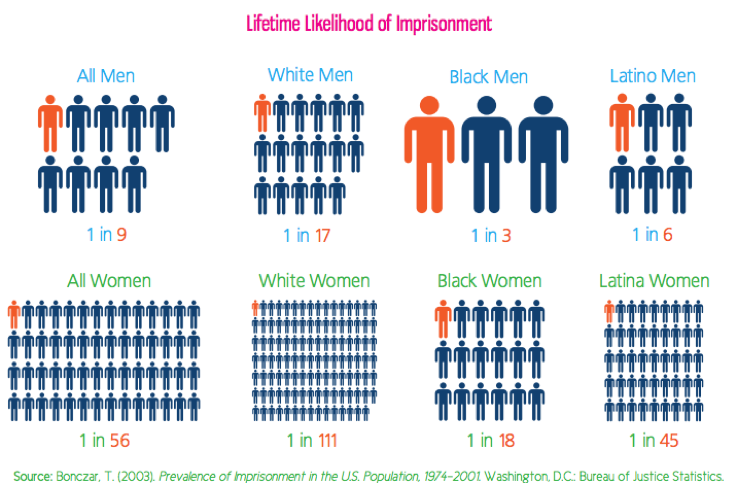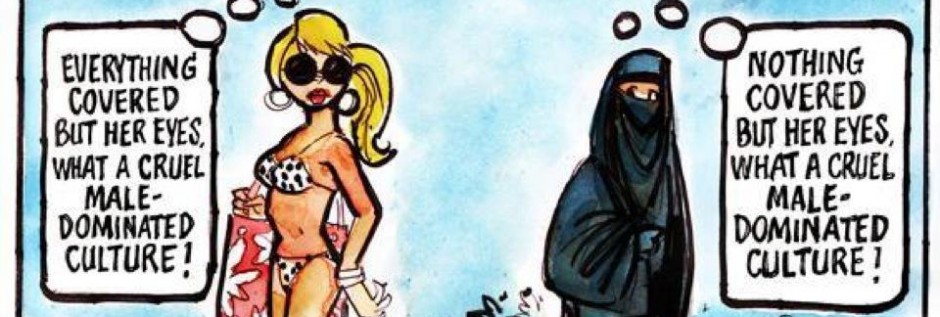
by Guillaume Etienne
In the United States, we have learned to cherish our sense of freedom, independence, and the prospect that if you work hard – you can achieve anything. This mentality, unfortunately, doesn’t reign true for all – in fact, it only reigns true under increasingly limited circumstances (typically… if you’re white, male, and have socio-economic stability). That being said, as one of the most powerful countries in the world and supposed aficionados of the ideas of justice and due process – we seem to be very fearful of a malign other that could show up at any time to overturn our system of ‘values’ or defile us in some way. This is especially true when it comes to the American perception of Muslims and Islam, which all-too-frequently is subject to rhetoric which promotes and prolongs a damaging stereotype of ‘all Muslims are radical’, or ‘lol, a religion of peace’.
Some may argue that we’re just a country with a keen interest on keeping our citizen safe from the dangers of crime. However, when you think of different countries with reputations of being “safe”, we’ll use Canada for the sake of example, their rates of incarceration pale in comparison to that of the United States. Using information gathered in 2011 by The Sentencing Project, we can see that the U.S. incarcerates 716 out of every 100,000 people. That doesn’t sound like a particularly large number until you realize that Canada’s ratio is 114 per 100,000. India only incarcerates 32 out of every 100,000 people. These numbers certainly raise some questions: Who are we locking up? What crimes seem to be so prevalent in the U.S. that we could have numbers like this?
Again, using data collected by The Sentencing Project, it becomes evident that we’ve got something going on with racial disparities in the criminal justice system. When it comes to the likelihood of ending up in prison, the numbers are as follows;

The photo above does an excellent job of providing a visual portrayal of the rather shocking disparities that we have in this country. The point of this is to try and bring a link between the oppression of a social group and the oppression of a religion to the surface. The complexities and some of the history of the relationship between Islam, African American communities, and the eventual rise of Islamic conversions in the American prison system most notably after the Civil Rights Movement, is a difficult path to follow.
Certainly, the surveillance of black communities has morphed from the blatant style of the 1960’s into the systemic racism that we have today, often referred to as “The New Jim Crowe” as coined by Michelle Alexander. The surveillance of Muslim communities, I argue, is in a position of suspicion and oppression less mature and systemic than that of African American communities in America today. It was as a result of the attacks on September 11th, 2001 that an already troubled American opinion of Muslims was tipped over the edge: “On August 23, in the third week of Ramadan, the Associated Press (AP) first reported on the New York Police Department’s (NYPD) program surveilling Muslim communities. Although countless stories of police spying had previously circulated within Muslim communities in the United States, and more than a handful of documented cases of surveillance had been established, the AP revealed secret NYPD documents that outlined a regional program, the NYPD Demographics Unit, designed to “put American citizens under surveillance and scrutinized where they ate, prayed, and worked solely because of their ethnicity”” (Ali 80).
Digging deeper into the interesting religious phenomenon of increasing numbers of African American men who convert to Islam while incarcerated – the thing I found the most thought-provoking was that that both Muslims and African Americans are oppressed groups – and whether this link can explain the recent popularity of Islamic conversion in prison. Cecil Aydin, in his book “The Idea of the Muslim World”, makes reference to a Black Protestant from West Africa named Edward Blyden who wrote “Mohammedanism and the Negro Race” (1875) stating that the use of the word Mohammedanism in that context “denotes a racial category, akin to “Negro.” What is more, in Blyden’s telling, the futures of Muslims and black-skinned people all over the world are distinct from those of the white Christian race” (Aydin 38). This provides a clear example of what it means to racialize Islam.
I won’t attempt to provide an explicit answer for why this connection exists, only to provide some context around the subject matter. There is a link between being an African American – a group which has experienced oppression since the start of the United States, and a Muslim – a group which is currently facing ostracization and labeling that causes real impacts in contemporary issues. The racialization of Islam has certainly played a role in the way we perceive this fast-growing religion in prisons, and it will have ramifications for our society in the future. America been discriminatory against Blacks and Muslims, without question. But, is this the reason for the surge in Islamic conversions in prison?
Works Cited:
Leonard Freed. USA. New Orleans, Louisiana. 1963. City prison.. 1963.
http://library.artstor.org.ezproxy.uvm.edu/asset/AMAGNUMIG_10311538559. Web. 8 Mar 2018.
Ammar, Nawal H. Muslims in US prisons: people, policy, practice. Lynne Rienner Publishers, Inc., 2015.
Aydin, Cemil. The idea of the Muslim world: a global intellectual history. Harvard University Press, 2017.
Hamm, Mark S. Spectacular few: prisoner radicalization and the evolving terrorist threat. New York Univ. Press, 2013.
Morgenstein Fuerst, Ilyse. Indian Muslim minorities and the 1857 Rebellion: religion, rebels, and jihad. I.B.Tauris, 2017.
Kwate, and Goodman. “An Empirical Analysis of White Privilege, Social Position and Health.” Social Science &Amp; Medicine, vol. 116, 2014, pp. 150–160.
Ali, Arshad Imitaz. “Citizens under Suspicion: Responsive Research with Community under Surveillance.” Anthropology &Amp; Education Quarterly, vol. 47, no. 1, 2016, pp. 78–95.
Alexander, Michelle. The New Jim Crow [Electronic Resource] : Mass Incarceration in the Age of Colorblindness / Michelle Alexander. Revised edition / with a new foreword by Cornel West.. ed., 2012.
